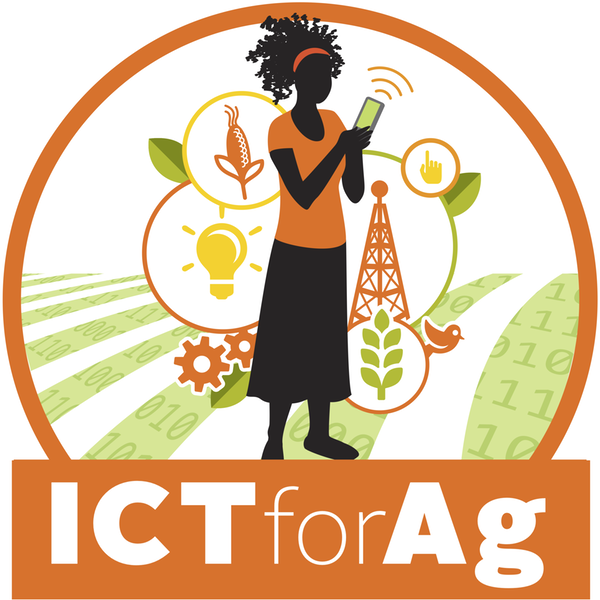Practical Insights on ICT4Ag

What is ICT4Ag?
ICT4Ag is using information and communication technology (ICT) in agricultural development programs. ICT4Agriculture programs aim to increase food security by helping smallholder farmers improve their use of modern agritech farming methods and their access to markets. These Agritech solutions encompass the full agricultural value chain and includes adjacent technologies like digital financial services and geographic information systems.
ICT4Ag solutions in the development sector help countries achieve the Sustainable Development goals. Solutions often focus on agriculture extension services for farmers to learn about agriculture technologies and innovation. ICTs can amplify the efforts of the extension agents who work directly with farmers across the entire value chain from planing what crops to grow, to sourcing inputs for crop cultivation, to selling it in the market.
Why is ICT4Ag Important?
Smallholder farmers have limited resources and often live in underserved and remote areas. They have limited knowledge, services, and technologies available to them, and typically need support to adopt modern farming methodologies. Agricultural extension services are usually inadequate , with less than one extension agent per 1000 farmers .
Climate change is now impacting more farmers, particularly the most vulnerable, so there is greater need for reaching farmers with information and services that can improve their food security. ICT4Ag can play a crucial role in supporting farmers to access new inputs, credit, and markets with personalized and customized services.
Examples of ICT4Ag in Food Security Programs
The potential to achieve high impact at the farm-level requires appropriate technology and adoption methodologies. Please find below an ever-increasing list of successful ICT4Ag solutions.
Researchers and practitioners who shape the digital transformation of smallholder agriculture need to better understand mobile phone-related behaviors and attitudes...
Published on: Mar 20 2025 by Josh Woodard - Comments Off on Unlocking Digital Inclusion for Food Security with Accelerators, Extenders, and Amplifiers
A little over a year ago, I oversaw the commissioning of an inclusive digital design toolkit focused on providing practical guidance for increasing digital inclusion...
The past decade has witnessed an explosion in the global supply of agriculture technology innovation. State of the Digital Agriculture Sector report offers first-of-its-kind...
Published on: Feb 22 2023 by Guest Writer - Comments Off on Very Accurate Artificial Intelligence Agricultural Advice in Thailand
The Department of Agriculture Extension (DOAE) at the Ministry of Agriculture in Thailand is among the first government agencies in the country to adopt Artificial...
Published on: Jan 10 2023 by Wayan Vota - Comments Off on 9 World Bank Digital Agriculture Programs Improving Food Security
Digital agriculture is the use of information and communication technologies across the agriculture and food system. According to the World Bank, agritech can help...
Published on: Dec 20 2022 by Wayan Vota - Comments Off on World Bank Funding for Digital Agriculture Startup Companies
Digital agriculture is important to the World Bank because it can help improve food security by making the food system more efficient, sustainable and equitable....
Sub-Saharan Africa has the largest area of arable uncultivated land in the world and a youthful population of almost 60 percent under the age of 25, which is expected...
Published on: Mar 24 2022 by Guest Writer - Comments Off on IDRC Predicts the Future of Artificial Intelligence in the Global South
There is little doubt that artificial intelligence technologies will be transformational. Breathtaking advances will be made, extraordinary wealth will be created,...
Published on: Mar 09 2022 by Guest Writer - Comments Off on USAID Resilience and Food Security Digital Strategy Action Plan
The application of digital technology within resilience and food security sectors has both sectorally unique elements, as well as some commonalities. Digital technologies...
According to the World Bank, West Africa is particularly vulnerable to climate change. The region will be buffeted by severe and extreme weather pattern changes...












